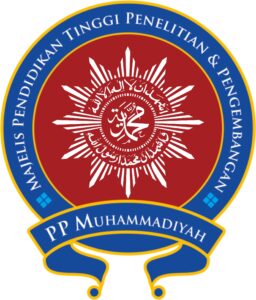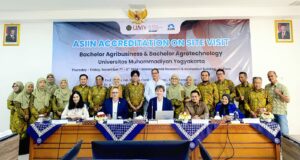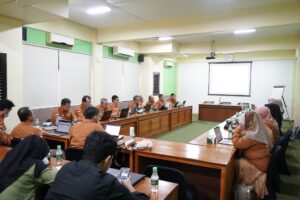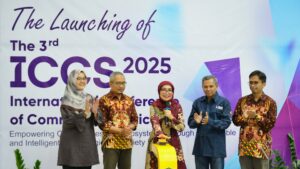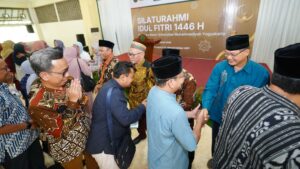Legal disputes often occur in Indonesia. Every resolution of legal disputes possesses different procedures and sections. Departing from the circumstance, Master of Law of Universitas Muhammadiyah Yogyakarta (UMY) conducted a Dispute Resolution Training on (16/3) at Graduate Building of UMY. The training aimed to improve ability of all students of Master of Law of UMY.
A lecturer of Faculty of Law of UMY who is also a member of National Sharia Arbitration Agency (Baysarnas), Dr. Danang Wahyu Muhammad, S.H., M.Hum. explained that Basyarnas can resolve Islamic economic disputes through an arbitration process. The resolution uses the legal basis of Law No. 30/1999 and Law No. 21/2008 on Sharia banking and a resolution from National Sharia Agency. He added, “In the Law No. 30/1999, it is explicated that arbitration is a resolution of civil dispute outside the general court based on a written arbitration agreement of the parties to dispute. In this case, Baysarnas becomes a body to handle disputes that related to commerce, industry, finance, and others.”
However, Danang stated that there are deficiencies solving Islamic economic law through arbitration processes. “Through the arbitration process, an institution can resolve the dispute faster because it is handled by experts, fully confidential, and surely can be controlled by related parties. However, it is important to remember that arbitration processes depend too much on arbiters, especially for bona fide parties. Moreover, the arbitration process precludes people from controlling trials and it is known by public to be a process that spends a lot of money,” maintained Danang.
On the same occasion, Head of Environmental Capacity Development Office of Yogyakarta, Very Tri Jatmiko, S.Si., M.M. delivered a material related to dispute resolution in the living environment. He conveyed that environmental issues comprise on water, air, and land. Frequent environmental issues are forest burning, environmental damage, and disposal of hazardous and toxic materials.
Very continued, “Environmental disputes often occur in our surroundings. To resolve the disputes, we refer to Law of 2009 about Protection and Management of the Environment, Ministerial Regulation No. 4/2013 about Environmental Dispute Resolution Guidelines, and Ministerial Regulation No.7/2014 about Environment Due to Pollution and/or Environmental Damage.”
Through the materials delivered by the two speakers, students of Master of Law of UMY were expected to become qualified practitioners who possess great competencies.
